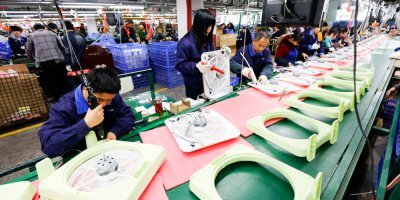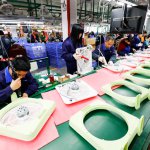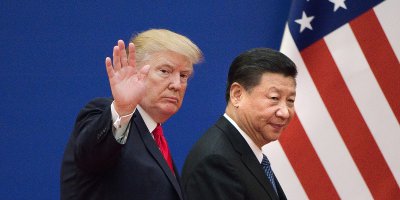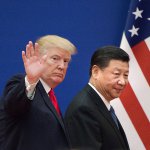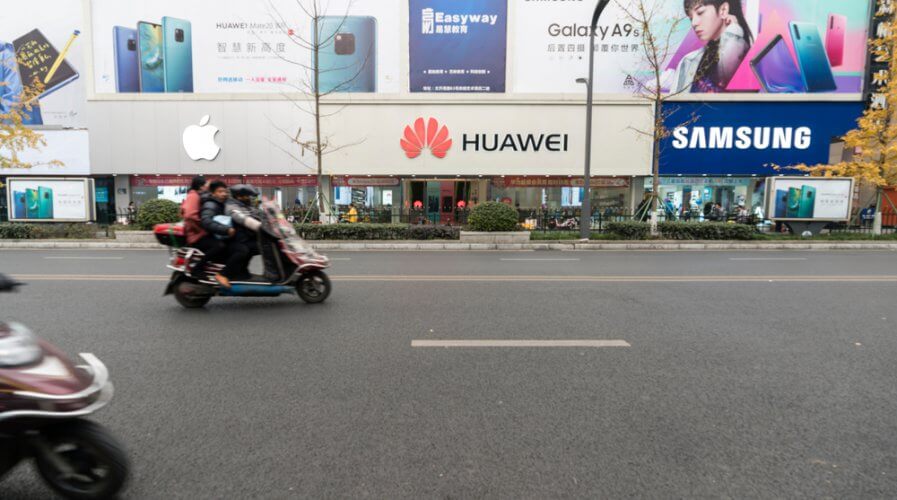
US preventing China’s dominance on tech hurt investments. Source: Shutterstock
US preventing China’s dominance in tech hurts investments
CHINESE tech companies are facing significant challenges as a result of the trade war between the US and China. Cybersecurity and other concerns regarding the rise of Chinese technology leave American allies at a fork in the road.
Which equipment providers will build their 5G networks?
To customers, 5G represents a faster network, to businesses would, it represents the ability to incorporate greater use of virtual reality and artificial intelligence services.
Instantaneous data transactions open up the possibility of devices continuously feeding information to one another in real time. Not only will this enable operations to be automated but it will also allow cities to operate without human intervention.
“This will be almost more important than electricity,” said Chris Lane, Hong Kong-based Senior Research Analyst at Sanford C. Bernstein.
“Everything will be connected, and the central nervous system of these smart cities will be your 5G network.”
The 5G system is reliant on highly complex software that needs constant updating. This is, of course, invisible to consumers. However, he who controls the networks controls the information flow.
Last year, the US started its global campaign to stop Chinese firms from participating in this new arms race. Citing threats to the Amerian national security, the Trump administration has been putting the heat on for its allies.
Its request for an embargo on Huawei Technologies, China’s leading telecommunications producer worldwide, has gained extensive media coverage.
Australia and New Zealand rejected the telecommunication industry request to use Huawei 5G equipment in August and November respectively. Japan, the UK, Germany, Malaysia, and Canada have had news that curbs Chinese firm expansion opportunities too.
“The core issue is that both nations want to dominate a sector defined by network effects. The best innovators leverage bigger data sets, larger consumer bases, global customers, while the most aggressive nationalists aim to box-out others’ products and people,” political analyst Bruce Hehlman told Axios.
He highlighted China’s “overwhelmingly aggressive” 2025 plan to dominate the tech industry should not be underestimated.
As the US ban looms over Chinese tech companies, Huawei Technologies tells suppliers to move production to China.
Sierra Leone Times reported that what had been a steady flow of Chinese investments into tech firms is slowing down.
In 2018, more than US$2 billion worth of Chinese investments went into American tech firms. Forbes reported that the figure is a ghastly 80 percent drop from the year before.
With intensified tension between the US and China, the figure could plummet further.
“There is no doubt there are legitimate concerns — both national security and economic — related to China,” explained Dean Garfield, Head of Information Technology Industry, a trade group representing the US and global tech companies.
Garfield’s outlook remains objective.
“The thing that we in the tech sector try to avoid is being reductionist in assuming simply because it is China that it is bad. That is simply not the case.”
Counterintuitively, both the US and China still need one another for this technology arms race. While the US relies on China for the manufacture of electronics, China is dependent on the US for (silicone) chips.
The trade war will most definitely hurt the Chinese tech firms, but is also beginning to have a negative impact on US-based tech giants.
Apple CEO Tim Cook cited the trade war as a reason for weaker sales in the region.
“Market data has shown that the contraction in Greater China’s smartphone market has been particularly sharp.”
A study showed that Apple only had a 1 percent growth year-on-year with 41 million units in its Q2 2018 report. On the other hand, Huawei has gone up 41 percent year-on-year with 54 million units.
At the end of the day, if tensions don’t dissipate, the fallout of the US-China trade war will be more global than most people perceive — but only time will tell who it will hit the hardest.



